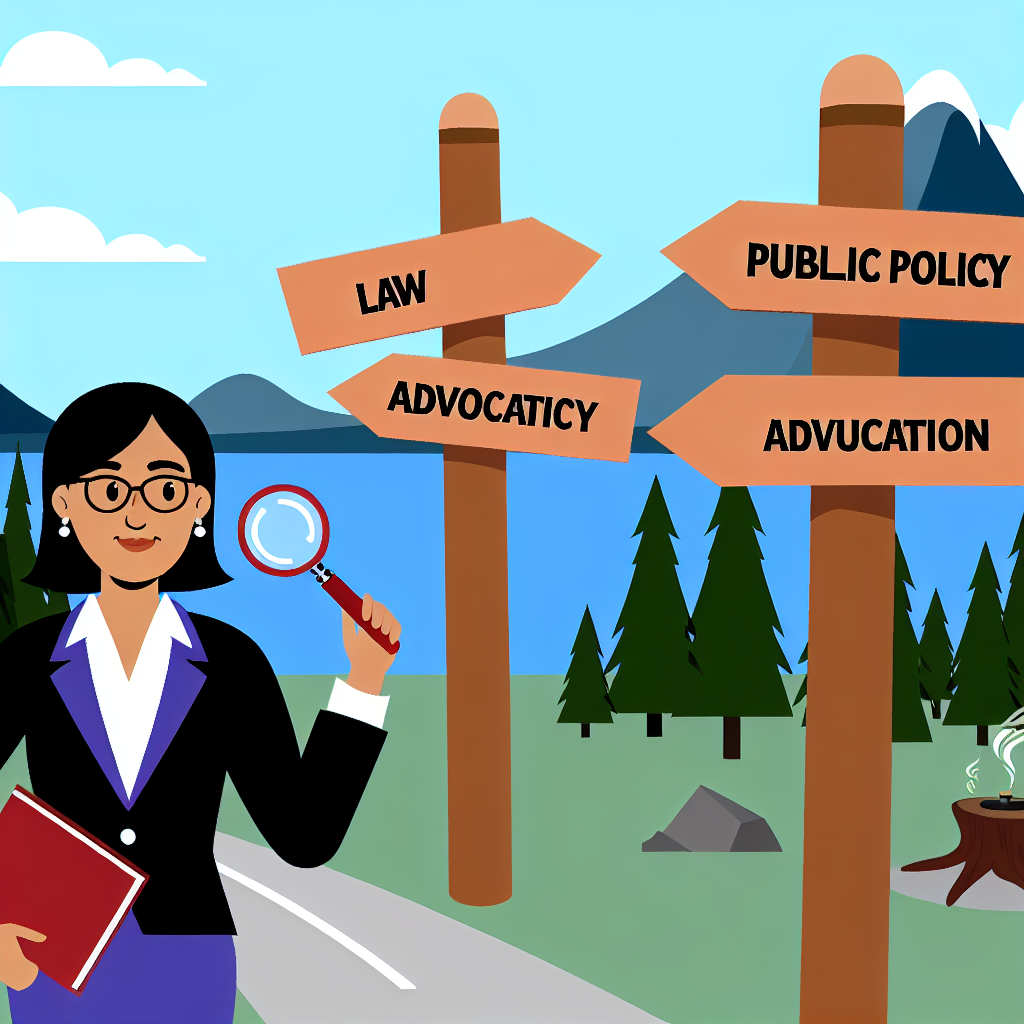Introduction to the Ombudsman Role
Definition of the Ombudsman
An ombudsman serves as an independent mediator.
Their primary role involves addressing complaints and concerns.
They provide oversight of governmental and private organizations.
This role is critical for promoting accountability and transparency.
Purpose of the Ombudsman
The purpose of an ombudsman is to protect the rights of individuals.
They investigate and address issues raised by citizens.
Additionally, they strive to improve organizational practices.
Through their efforts, ombudsmen enhance public trust.
Types of Ombudsman
Various types of ombudsmen exist across different sectors.
- Government ombudsmen handle public sector complaints.
- Corporate ombudsmen address issues within private companies.
- Educational ombudsmen focus on student and faculty concerns.
Key Responsibilities
Ombudsmen have a range of responsibilities.
- They conduct impartial investigations into complaints.
- Ombudsmen provide recommendations for resolution.
- They report on systemic issues affecting stakeholders.
Importance of the Ombudsman Role
The ombudsman role is vital in fostering communication.
It encourages organizations to be responsive to feedback.
Moreover, it helps identify areas needing improvement.
Ultimately, this leads to enhanced service delivery.
Educational Requirements and Key Qualifications for Becoming an Ombudsman
Understanding Educational Background
A bachelor’s degree is often the minimum requirement to enter this field.
Common majors include public administration, law, or social sciences.
Some positions may require a master’s degree in a related area.
Additionally, specialized training in conflict resolution can be beneficial.
Professional Experience
Gaining relevant work experience is crucial for aspiring ombudsmen.
Experience in customer relations, advocacy, or legal services is advantageous.
Internships or volunteer work in governmental or non-profit organizations can enhance prospects.
Moreover, many successful ombudsmen have backgrounds in mediation or negotiation roles.
Key Skills and Qualifications
Strong communication skills are essential for effective interaction with diverse individuals.
Critical thinking abilities help in analyzing complex situations and finding solutions.
Empathy and patience foster positive relationships with clients and stakeholders.
Unlock Your Career Potential
Visualize a clear path to success with our tailored Career Consulting service. Personalized insights in just 1-3 days.
Get StartedAdditionally, ombudsmen require strong organizational skills to manage caseloads efficiently.
Certification and Continuous Education
Obtaining certification can enhance credibility and career opportunities.
Organizations offer certifications specific to ombudsman practices.
Continuing education keeps professionals updated on relevant laws and best practices.
Participating in workshops and seminars is a great way to stay informed.
Networking and Professional Associations
Joining professional associations can provide valuable resources and connections.
Networking helps in learning about job openings and industry trends.
Attending conferences fosters relationships with established professionals in the field.
Moreover, members often share insights and strategies for success.
Essential Skills and Competencies Needed for a Successful Ombudsman Career
Communication Skills
Effective communication is vital for an ombudsman.
They must articulate complex issues clearly.
Moreover, active listening skills are essential.
This facilitates better understanding and resolution of conflicts.
Analytical Skills
Ombudsmen need strong analytical abilities.
They evaluate information and identify patterns in complaints.
Additionally, they assess cases fairly and impartially.
Critical thinking enhances their decision-making process.
Interpersonal Skills
Building relationships is crucial in this role.
Ombudsmen must show empathy toward those they serve.
They should also demonstrate professionalism in all interactions.
Furthermore, conflict resolution skills enhance their effectiveness.
Knowledge of Relevant Laws and Policies
A comprehensive understanding of laws is important.
Ombudsmen must stay updated on legislative changes.
This knowledge helps them navigate complex systems effectively.
Compliance with organizational policies is also crucial.
Organization and Time Management Skills
Ombudsmen often handle multiple cases simultaneously.
Therefore, organizational skills are necessary.
They must prioritize tasks to meet deadlines.
Effective time management contributes to their success.
Cultural Competency
Understanding diverse populations is essential in this role.
Ombudsmen must respect cultural differences among individuals.
This sensitivity fosters trust and rapport.
Moreover, they should adapt their approaches accordingly.
Delve into the Subject: How Canada’s Focus on Diversity is Reshaping Public Service Careers
Different Types of Ombudsman Positions
Public Sector Ombudsman
Public sector ombudsmen operate within government agencies.
Their primary role involves addressing complaints from citizens.
They investigate issues related to public services.
These positions exist at local, regional, and national levels.
Common agencies include health, education, and local councils.
Private Sector Ombudsman
Private sector ombudsmen focus on private companies and organizations.
They manage complaints from consumers and clients.
These ombudsmen often work in finance, insurance, and telecommunications.
Companies rely on them to maintain customer satisfaction.
Furthermore, they help build trust between businesses and consumers.
Industry-Specific Ombudsman
Industry-specific ombudsmen specialize in particular fields.
For example, there are ombudsmen for health care and education.
Their role is to ensure compliance with industry regulations.
They provide guidance on best practices and ethical standards.
Additionally, they often mediate between stakeholders and regulators.
Career Path and Opportunities
Ombudsman positions offer varied career pathways.
Educational requirements typically include a degree in law or public administration.
Experience in customer service or conflict resolution is highly valuable.
Internships can enhance practical skills and networking opportunities.
Many organizations offer training programs for aspiring ombudsmen.
Challenges and Rewards of the Role
Ombudsman roles can be demanding yet rewarding.
They require strong communication and analytical skills.
Professionals must navigate complex regulations and diverse complaints.
However, they play a vital role in promoting accountability.
The satisfaction of helping others adds to career fulfillment.
Uncover the Details: How Policy Analysts Shape Canada’s Future: Career Insights and Opportunities
Career Pathways: Steps to Becoming an Ombudsman and Potential Advancement Opportunities
Understanding the Role of an Ombudsman
An ombudsman acts as a neutral intermediary in disputes.
This professional helps resolve issues between individuals and organizations.
They often investigate complaints and recommend solutions.
Moreover, ombudsmen play a critical role in promoting transparency.
Steps to Becoming an Ombudsman
First, consider obtaining a relevant degree.
A degree in law, public administration, or a related field is beneficial.
Next, gain practical experience in mediation or conflict resolution.
Internships in governmental or non-profit organizations can be invaluable.
Subsequently, develop strong communication skills.
Effective listening and negotiation skills are crucial in this role.
Additionally, familiarize yourself with relevant laws and regulations.
Knowledge of administrative procedures is equally important.
Exploring Educational Opportunities
Pursue advanced certifications in conflict resolution or mediation.
Many institutions offer specialized training programs.
Researching online courses can provide flexibility for working professionals.
Networking with experienced ombudsmen can also offer insights.
Gaining Relevant Experience
Seek entry-level positions in administrative roles or complaint resolution.
Consider volunteer opportunities with non-profits focusing on advocacy.
Every experience enhances your understanding of the ombudsman role.
Potential Advancement Opportunities
Experienced ombudsmen may advance to senior roles within organizations.
They might lead offices or manage teams of ombudsmen.
Other pathways include specializing in a specific sector or area.
Teaching and training new ombudsmen is another viable option.
Ombudsman Career Trends
The demand for ombudsmen is increasing in various sectors.
Governmental agencies and corporations prioritize conflict resolution.
Moreover, emerging fields like technology require specialized knowledge.
Staying informed about trends enhances your career prospects.
Networking with industry professionals can help you navigate opportunities.
Learn More: The Changing Face of Public Service Careers in Canada: What’s New in 2024
The Importance of Experience: Internships, Volunteering, and Entry-Level Positions
Gaining Practical Skills Through Internships
Internships provide crucial experience in the ombudsman field.
They offer hands-on training and exposure to real-world issues.
Many organizations seek interns to assist with various tasks.
Interns learn about conflict resolution and public policy.
These experiences enhance your resume and professional network.
Volunteering for Skill Development
Volunteering is another excellent way to gain relevant experience.
Organizations often welcome volunteers to support their programs.
You can develop skills in communication and advocacy.
Additionally, volunteering provides insights into community needs.
Many ombudsman roles value candidates with volunteer backgrounds.
Exploring Entry-Level Positions
Entry-level positions introduce you to the ombudsman profession.
They allow you to understand organizational operations.
These roles often come with mentorship opportunities.
Moreover, they help you build important relationships in the field.
Many successful ombudsmen start their careers in these positions.
Networking and Professional Development
Networking plays a pivotal role in advancing your career.
Connect with professionals in the ombudsman community.
Attend workshops, conferences, and seminars to learn more.
These events enhance your understanding of the field.
Building a strong professional network can lead to job opportunities.
Explore Further: How to Secure a Career in Environmental Policy in Canada

Challenges and Responsibilities Involved in an Ombudsman Role
Understanding the Ombudsman Role
An ombudsman acts as an independent mediator in disputes.
This role often requires a deep understanding of complex regulations.
Additionally, ombudsmen must maintain neutrality throughout investigations.
Common Challenges Faced
One significant challenge includes managing high caseloads effectively.
Ombudsmen often encounter emotionally charged situations.
They may face resistance from organizations or individuals involved.
Inaccurate information can complicate investigations significantly.
Key Responsibilities
Ombudsmen investigate complaints thoroughly and impartially.
They document their findings and make recommendations accordingly.
Moreover, they provide guidance to individuals seeking assistance.
Establishing rapport with involved parties is also crucial.
Collaboration and Communication
Effective communication skills are vital in this role.
Ombudsmen must convey information clearly to all parties.
Collaboration with various departments enhances the resolution process.
Building trust within the community is essential for success.
Impact of the Role
Ombudsmen contribute significantly to resolving conflicts.
They enhance transparency within organizations by holding them accountable.
Furthermore, their work can lead to systemic improvements in policies.
This role ultimately contributes to a fairer and more just society.
Impact of Technology on Ombudsman Services
Digital Tools
Technology has revolutionized the way ombudsman services operate.
Digital tools enhance accessibility for all users.
Online platforms provide information quickly and efficiently.
Certification software streamlines the complaint submission process.
Moreover, data analytics helps identify trends in disputes.
Online Dispute Resolution
Online dispute resolution (ODR) has gained traction in recent years.
ODR offers a convenient way to resolve complaints remotely.
It saves time and reduces the need for in-person meetings.
Additionally, ODR can lower costs for both parties involved.
This approach utilizes video conferencing and chat functions.
Improving Communication
Technology enhances communication between ombudsman and complainants.
Chatbots provide instant support on frequently asked questions.
Emails and notifications keep users informed throughout the process.
Furthermore, social media platforms allow for broader outreach.
These tools make ombudsman services more transparent and accessible.
Data Security and Privacy
While technology offers advantages, it also raises privacy concerns.
Ombudsman services must prioritize data security measures.
Encryption helps protect sensitive information from breaches.
Regular audits ensure compliance with relevant regulations.
Overall, ensuring privacy fosters trust between users and services.
Networking and Professional Development Resources for Aspiring Ombudsmen
Importance of Networking
Networking is essential for career advancement in the ombudsman field.
Connections can lead to mentorship opportunities and insider information.
Additionally, networking can help you understand industry trends and best practices.
Professional Associations and Organizations
Joining professional organizations can enhance your credibility as an ombudsman.
Organizations such as the International Ombudsman Association (IOA) provide resources.
They offer training programs, conferences, and valuable networking events.
Local ombudsman associations also offer community-specific training and resources.
Conferences and Workshops
Attending conferences can significantly boost your professional knowledge.
These events often feature expert speakers and impactful workshops.
Networking with peers at these gatherings can foster lasting professional relationships.
Online Networking Platforms
Utilizing online platforms like LinkedIn can expand your professional network.
Joining relevant groups allows you to engage with other ombudsmen and experts.
Online forums and webinars also provide additional learning and networking opportunities.
Mentorship Opportunities
Finding a mentor can accelerate your career growth as an ombudsman.
A mentor can provide guidance, resources, and valuable insights from their experiences.
Consider reaching out to professionals you admire within the ombudsman community.
Continuing Education and Training
Ongoing education is crucial in maintaining your ombudsman skills.
Many organizations offer certification programs and specialized training sessions.
These educational opportunities keep you updated on best practices and standards.
Volunteer and Internship Opportunities
Gaining practical experience through internships can be invaluable.
Volunteer positions allow you to develop your skills while serving the community.
Both experiences can lead to important professional contacts and references.
Additional Resources
I Blew Up My Lucrative Public-Service Career (And So Can You)
Best Practices in Equity, Diversity and Inclusion in Research




